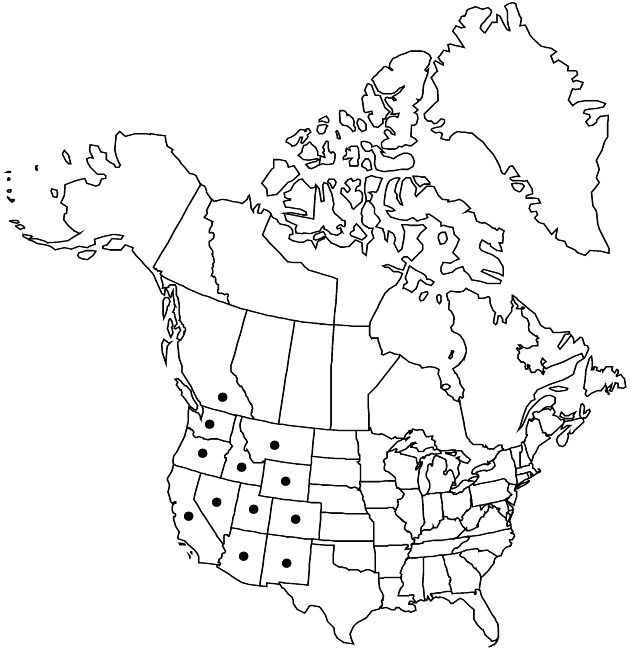Difference between revisions of "Tetradymia canescens"
in A. P. de Candolle and A. L. P. P. de Candolle, Prodr. 6: 440. 1838.
IllustratedEndemic
Synonyms: Tetradymia inermis Nuttall
Treatment appears in FNA Volume 20. Treatment on page 630.
FNA>Volume Importer |
imported>Volume Importer |
||
| (One intermediate revision by the same user not shown) | |||
| Line 1: | Line 1: | ||
{{Treatment/ID | {{Treatment/ID | ||
|accepted_name=Tetradymia canescens | |accepted_name=Tetradymia canescens | ||
| − | |accepted_authority= | + | |accepted_authority=de Candolle |
|publications={{Treatment/Publication | |publications={{Treatment/Publication | ||
|title=in A. P. de Candolle and A. L. P. P. de Candolle, Prodr. | |title=in A. P. de Candolle and A. L. P. P. de Candolle, Prodr. | ||
|place=6: 440. 1838 | |place=6: 440. 1838 | ||
|year=1838 | |year=1838 | ||
| + | }} | ||
| + | |special_status={{Treatment/ID/Special_status | ||
| + | |code=F | ||
| + | |label=Illustrated | ||
| + | }}{{Treatment/ID/Special_status | ||
| + | |code=E | ||
| + | |label=Endemic | ||
}} | }} | ||
|basionyms= | |basionyms= | ||
| Line 35: | Line 42: | ||
-->{{#Taxon: | -->{{#Taxon: | ||
name=Tetradymia canescens | name=Tetradymia canescens | ||
| − | |authority= | + | |authority=de Candolle |
|rank=species | |rank=species | ||
|parent rank=genus | |parent rank=genus | ||
| Line 48: | Line 55: | ||
|publication title=in A. P. de Candolle and A. L. P. P. de Candolle, Prodr. | |publication title=in A. P. de Candolle and A. L. P. P. de Candolle, Prodr. | ||
|publication year=1838 | |publication year=1838 | ||
| − | |special status= | + | |special status=Illustrated;Endemic |
| − | |source xml=https:// | + | |source xml=https://bitbucket.org/aafc-mbb/fna-data-curation/src/2e0870ddd59836b60bcf96646a41e87ea5a5943a/coarse_grained_fna_xml/V19-20-21/V20_1414.xml |
|tribe=Asteraceae tribe Senecioneae | |tribe=Asteraceae tribe Senecioneae | ||
|genus=Tetradymia | |genus=Tetradymia | ||
Latest revision as of 20:00, 5 November 2020
Shrubs, 10–80 cm. Stems 1–5+, erect, unarmed, pannose but for floccose or glabrescent streaks. Leaves: primaries lanceolate to spatulate, 5–40 (× 2–6) mm, tomentose to sericeous; secondaries similar, smaller. Heads 3–8. Peduncles 5–25 mm. Involucres turbinate to cylindric, 6–12 mm. Phyllaries 4, oblong to lanceolate. Florets 4; corollas cream to bright yellow, 7–15 mm. Cypselae 3–5 mm, glabrous or hirsute; pappi of 100–150 bristles 6–11 mm. 2n = 60, 62, 90, 120.
Phenology: Flowering spring–fall.
Habitat: Sagebrush scrub, pinyon-juniper woodlands, yellow-pine forests
Elevation: 400–3300 m
Distribution

B.C., Ariz., Calif., Colo., Idaho, Mont., Nev., N.Mex., Oreg., Utah, Wash., Wyo.
Discussion
Selected References
None.
Lower Taxa
None.
